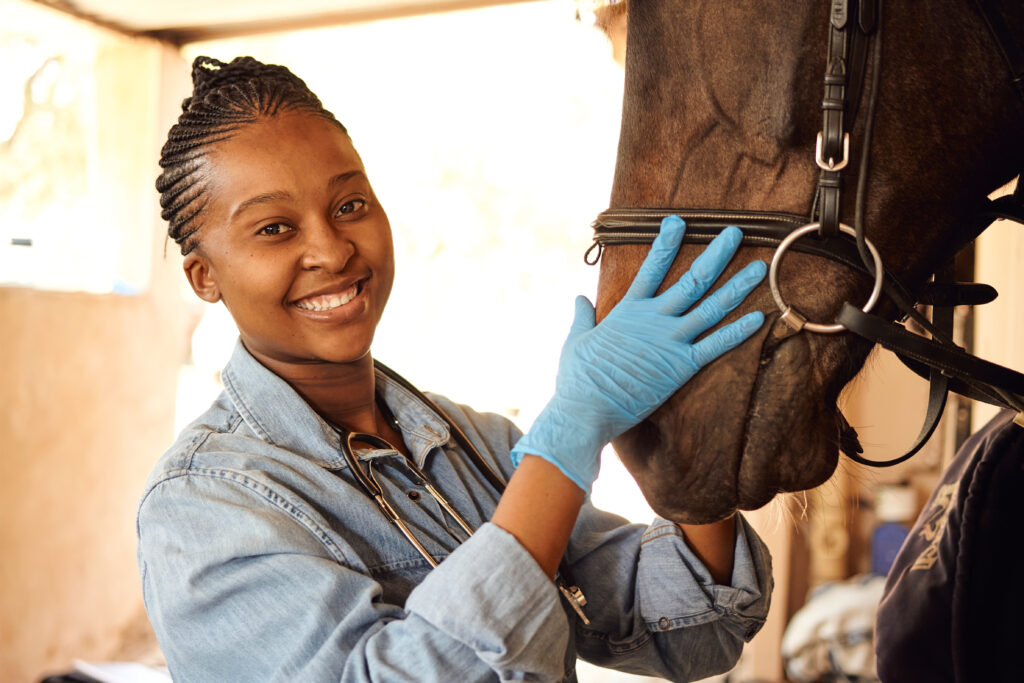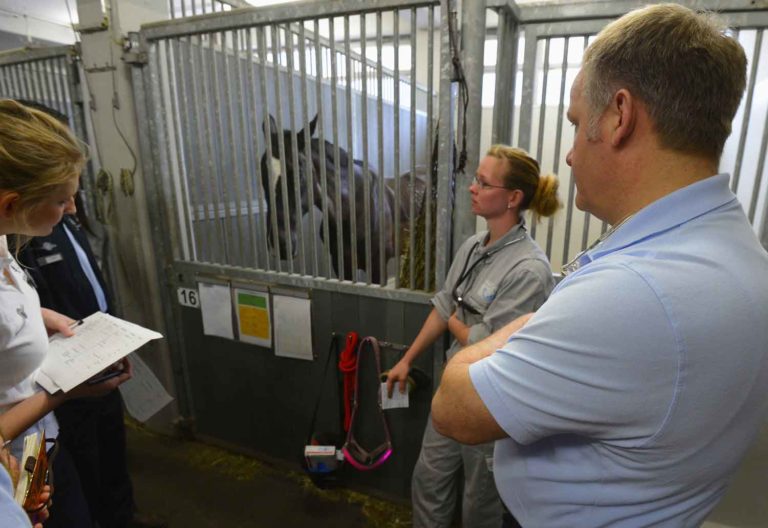
The AAEP Commission on Equine Veterinary Sustainability’s Internship Subcommittee has been crafting a new approach for equine internships in the hope these positions increase the likelihood of new veterinarians staying in the profession. The subcommittee has created a plethora of resources for choosing externships and internships, as well as guidelines for practices that offer internships and a new website presence for internships. The current subcommittee includes chair Dr. Jackie Christakos, officer liaison Dr. Sarah Reuss, and members Drs. Michelle Barton, Rachel Liepman, Zach Loppnow, Ernie Martinez, Ellen Staples, Jesse Tyma, and Tori Martin.
Reducing Attrition Rate
In a recent interview, subcommittee member Rachel Liepman, DVM, MS, Dipl. ACVIM (LAIM), of Phoenix-based Cave Creek Equine, revealed that, in her opinion, the most important things internship programs can do to help reduce the astounding attrition rate are multifaceted.
“First, nurture interns’ eager minds and encourage the team to approach this relationship from a place of empathy and compassion,” she said. “Encourage open discussion, take time to mentor, and try to avoid negativity by being constructive. Second, be mindful of schedules, and encourage interns to work as a team but to also take their time off, leave at the end of their workday and practice self-care. Being a good model of these behaviors can help, so mentors should take inventory of their habits to be sure they’re being a good role model. Third, work on creating a structured program that provides an educational experience, not treating interns as cheap labor or as glorified veterinary assistants or technicians. This structure will likely look different in each practice, but having a structure to the educational experience will benefit the practice and the intern in getting the most out of their experience.”
Meaningful Benefits of Internships
When asked “What do you think is the most meaningful thing that interns gain from their experiences during this formative year?” Liepman had a thoughtful answer. “Internship, in my humble opinion, is an amazing year,” she said. “You gain so much experience and forge relationships that will hopefully last for the rest of your career. Internships should provide an invaluable experience comprising mentorship by seasoned veterinarians in the field; relationship-building with mentors, fellow interns, and staff; and the ability to learn from a large case volume in a short time period. We want to do better in providing all of this while not pushing these early career veterinarians out of the equine field. We need to balance the workload of an internship with realistic expectations of what their future can look like. I believe that modeling on our part is key.”
Internship/Externship Hub Website
Regarding the upcoming changes to the AAEP’s former Avenues program, Liepman explained that the Internship Subcommittee’s goal is to provide practices with a list of needed information in plenty of time for the upcoming release of the new Internship/Externship hub website. “We hope to give practices adequate lead time to gather the information needed to enter into the database to populate their listings,” she said. This will likely be done over email, but informational sessions and webinars will be available to help guide practices with initial steps, she added.
“Although there will be ample legwork on the part of participating practices in the early stages to gather the information, we hope that smaller changes will be needed in subsequent years to update their listings after the initial lift,” she said.
The AAEP hopes the new website system will allow prospective interns to find programs that meet their needs, while also increasing the visibility of less-well-known practices that have developed programs that focus on a high-quality intern experience as outlined by the subcommittee. By creating a rating system where former interns can anonymously share whether their experience matched the program description, applicants can make more informed decisions. If practices whose business model requires interns serving in technical roles cannot adapt to new expectations, they will likely see less interested applicants, which could slow the loss of talented doctors that currently become burned out during their first year of practice.
Final Thoughts
The work of the AAEP Commission on Equine Veterinary Sustainability’s Internship Subcommittee has been wide in scope and remarkable in productivity. The resources they have created are available at aaep.org/aaep-equine-veterinary-sustainability-initiative/internships.
Related Reading
- AAEP Commission on Veterinary Sustainability: Improved Internships Will Help Retention
- AAEP Commission on Veterinary Sustainability: Good News About Compensation
- AAEP Wellness Coverage: Using Competency-Based Education to Give Young Practitioners Feedback
Stay in the know! Sign up for EquiManagement’s FREE weekly newsletters to get the latest equine research, disease alerts, and vet practice updates delivered straight to your inbox.

![[Aggregator] Downloaded image for imported item #18782](https://s3.amazonaws.com/wp-s3-equimanagement.com/wp-content/uploads/2025/11/03125751/EDCC-Unbranded-13-scaled-1-768x512.jpeg)
![[Aggregator] Downloaded image for imported item #18375](https://s3.amazonaws.com/wp-s3-equimanagement.com/wp-content/uploads/2025/09/30140031/EDCC-Unbranded-26-scaled-1-768x512.jpeg)

